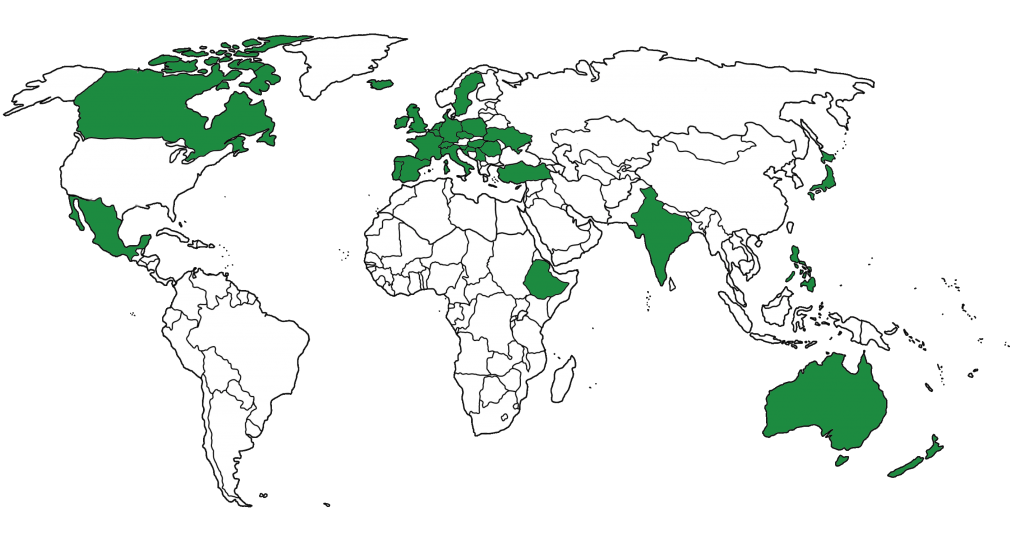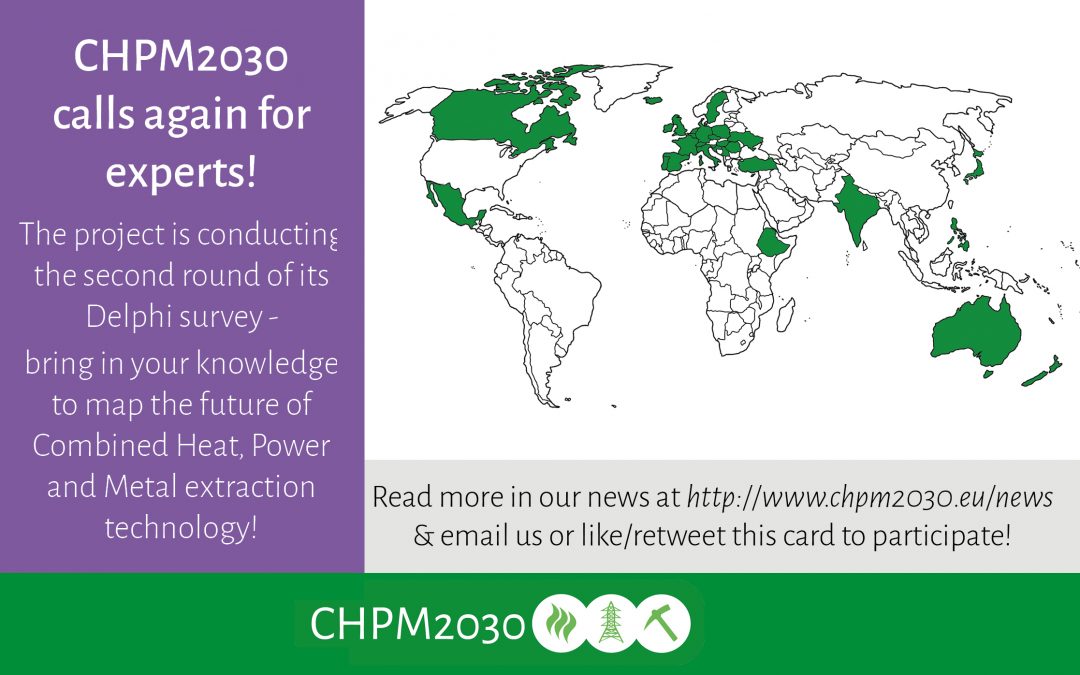The CHPM2030 project is working on a novel, potentially disruptive technology that combines geothermal energy and mineral extraction in a single interlinked process: Combined Heat, Power and Metal extraction, or in short CHPM. This technology aims to increase financial feasibility of geothermal projects, by recovering valuable metals (e.g. Au, Ag, Sn, Fe, Li, REE, etc.) from the geothermal brine. Therefore, the geothermal reservoir is chosen as such, that it coincides with a deep metal enrichment, allowing for both geothermal and mineral potential.
The project is currently conducting a two-round Delphi* survey that maps future development of uncertain but important areas for CHPM technology application.
During the 1st round of this Delphi survey conducted in May 2018, more than 100 experts have participated worldwide. The project now is conducting the second round and is again calling for experts in the field of geothermal and/or minerals. The new form already includes the overall opinion of the sector and encourages participants to comment in the light of previously provided expert opinions and insights. The survey also aims to analyse emerging issues of different aspects of the CHPM technology, many of which have been identified in the first round. To learn more about these identified emerging issues, and reflect on them, please email Tamas Miklovicz (tamas.miklovicz_at_lapalmacentre.eu) to participate.
The deadline for participation is 6 July 2018.

Figure: Global participation in the first round of the CHPM2030 Delphi survey.
*The Delphi survey was originally developed as a technological forecasting technique, which aimed at reaching consensus over relevant technological developments. Nowadays, Delphi expanded into a variety of modified approaches. However, at its core Delphi stands out as a reliable method in situations where individual judgements must be tapped and combined to address an incomplete state of knowledge. Delphi is based on anonymous opinions of experts who are fed back the results of a round-based survey, allowing these experts to rethink their judgement and converge to consensus over key identified areas.

